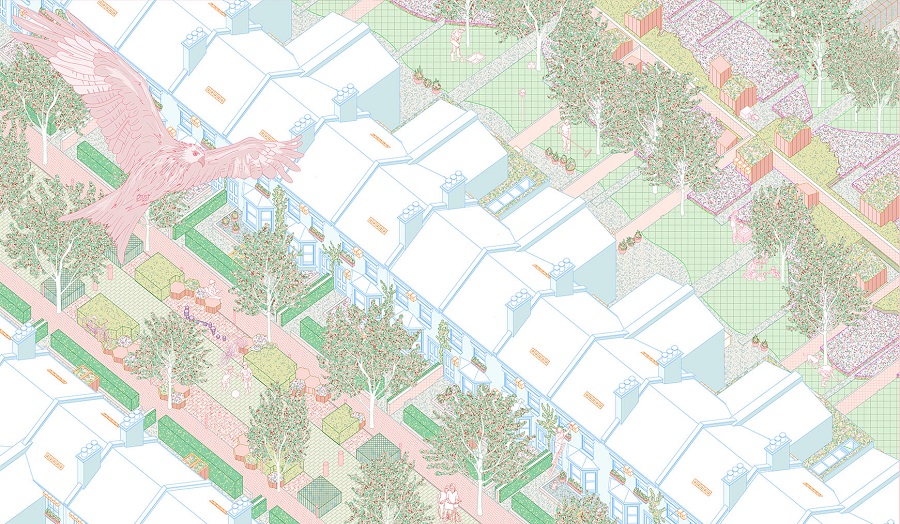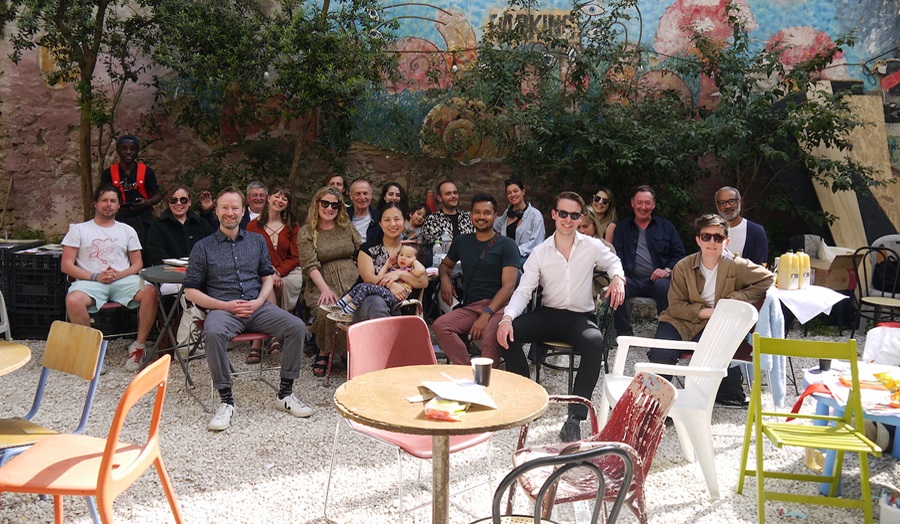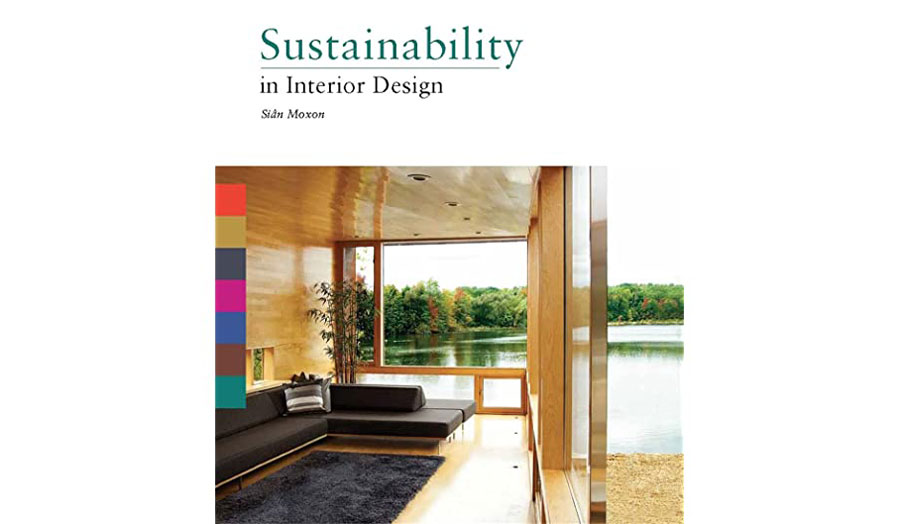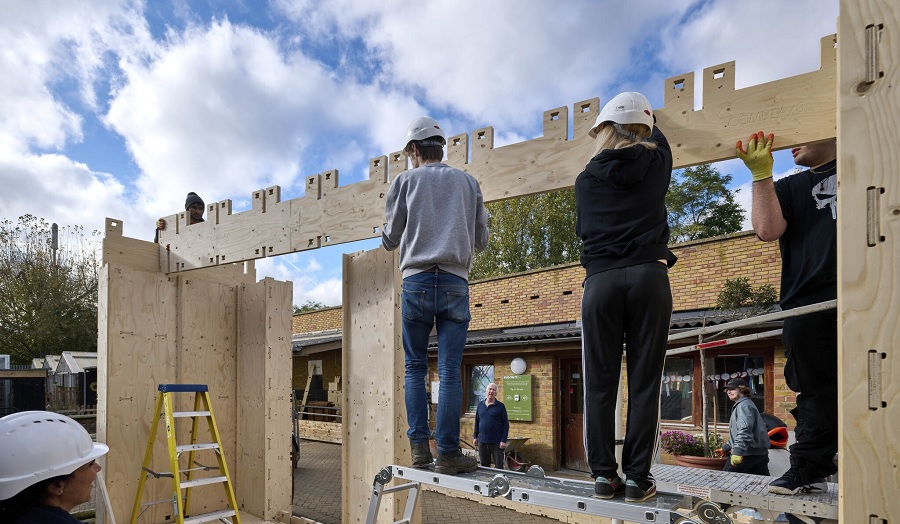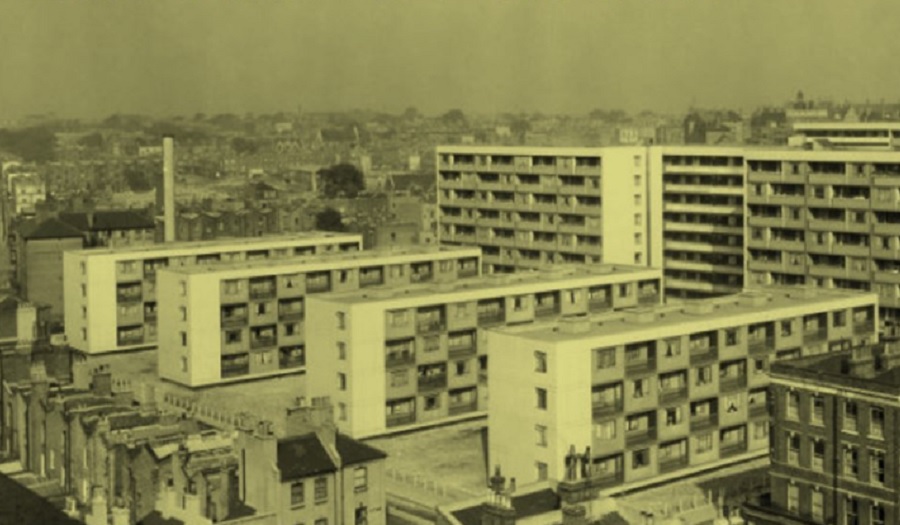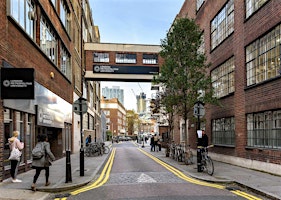Apply for this course
Please select when you would like to start:
If you're a UK applicant wanting to study full-time starting in September, you must apply via UCAS unless otherwise specified. If you're an international applicant wanting to study full-time, you can choose to apply via UCAS or directly to the University.
If you're applying for part-time study, you should apply directly to the University. If you require a Student visa, please be aware that you will not be able to study as a part-time student at undergraduate level.
Why study this course?
This is a top-up version of our Architecture BA (Hons) degree. A top-up degree is the final year (Level 6) of an undergraduate degree course and is for those who have a foundation degree, Higher National Diploma or equivalent qualification, or those wishing to study the final year of their degree in London.
Advanced Level 6 entry to this course offers you a multifaceted design-based education that, on successful completion (120 credits on either a full-time or part-time basis), provides exemption from Royal British Institute of British Architects (RIBA) 1 – the first stage of a professional qualification in architecture. Typically, graduates go on to RIBA Part 2 and RIBA Part 3 at London Metropolitan University.
You must complete a total of 120 credits, studying either on a full-time of part-time basis, to be eligible for RIBA/ARB Part 1.
Fourth in London for student satisfaction
Our architecture courses are ranked fourth in London for student satisfaction in the Complete University Guide 2025
Validated by professional UK architectural bodies
The course is validated by the Royal Institute of British Architects (RIBA) and prescribed by the Architects’ Registration Board (ARB)
Taught by leading practitioners
Our lecturers will bring a wealth of technical expertise to your learning experience and provide insight into industry best practices
Course modules
The modules listed below are for the academic year 2024/25 and represent the course modules at this time. Modules and module details (including, but not limited to, location and time) are subject to change over time.
Year modules
Critical & Contextual Studies 3: Dissertation (Architecture)
This module currently runs:autumn semester - Wednesday afternoon
autumn semester - Wednesday morning
(core, 30 credits)
Critical and Contextual Studies (CCS) in Level 6 offers you an opportunity to develop a sustained enquiry into a topic you choose because it particularly interests you. Building on critical and academic skills gained during two years of previous study, the module encourages you to develop an awareness of issues around which there is some debate, uncertainty or contest. Based on this awareness, you will develop a set of research questions which constitute the topic of your study. This topic can be theoretical, historical, or technical and you may, with guidance, decide to engage with an area of scholarly interest outside the territory of your degree course.
You will develop your topic and respond to your research questions in the form of an extended critical study or Dissertation (6,000–7,000 words). Through this study you demonstrate that you can thoroughly research a topic, use appropriate methods of investigation, and work in a methodical and organised way to develop a coherent argument or line of thought. Teaching and Learning on the module is designed to support you in this process through a combination of seminars, workshops, academic skill sessions and one-to-one supervision; as well as a series of formative and summative assessments which prepare you for the final submission.
The final form and presentation of your Dissertation can reflect a broad range of approaches to research and writing. It may include visual materials or other non-written forms of presentation as long they support your enquiry and comprise an integral part of the whole. By prior approval at the start of the module, your research can be part practice-based, and include primary research and fieldwork.
By virtue of the sustained, independent nature of the learning and substantial final output, the dissertation is also intended to prepare you for possible postgraduate study.
The aims of the module are to teach skills pertaining to Ethical and Professional Practice; History, Theories and Methodologies (‘themes and values’ from Royal Institute of British Architects (RIBA):: The Way Ahead 2021), appropriate to Level 6. The module also aims to provide a practical framework through which you can address the academic discipline of architecture as outlined in the RIBA document ‘The Way Ahead, Education Themes and Values’ 2021 as well as ‘Guidance Notes to Institutions’ issued by the Architects Registration Board (ARB) in 2021.
Read full detailsDesign Project Development 3.1
This module currently runs:autumn semester - Friday
(core, 30 credits)
Design Project Development 3.1 will establish a process of research, design development and proposition that generates the design brief for AR6002 Design Project Resolution 3.2: Comprehensive Design project. It supports you as an independent learner within the framework of the studio. Whilst improving your practical skills and refining your ability to use them productively, the focus in this module is on developing a depth of knowledge and understanding and strengthening approaches to research and project development.
You have already been introduced to the basic range of constituents and conditions that pertain to the design of a building in your previous design projects, technology studies, and historical, theoretical, and professional studies. In this module, you are expected to draw on these as well as the agenda offered by your choice of Studio. The module helps you to establish ownership of the process of research, design development and proposition that generates the design brief and its resolution in the project. The module allows you the opportunity to test working methods, clarify intentions, frame your project proposal and develop your design position within an evaluative and critical context, including external and professional reference points.
The module consolidates skills and knowledge gained at Levels 4 and 5. It works in partnership with AR6002 Design Project Resolution 3.2 and runs in conjunction with the AR6003 Technology 3, Integrated Design Audit module that requires specific and highly detailed appraisal of its cultural professional, technical and environmental issues. Its aim is to provide the context in which you can research, generate, explore and test the parameters of a project, its central themes and features. The module places emphasis on developing self-direction and personal focus whilst acknowledging external and professional reference points.
The aims of the module are to teach skills pertaining to Health and Life Safety; Ethical and Professional Practice; Structure, Construction and Resources; and Design Processes and Communication (‘themes and values’ from Royal Institute of British Architects (RIBA): The Way Ahead 2021), appropriate to Level 6. The module also aims to provide a practical framework through which you can address the academic discipline of architecture as outlined in the RIBA document ‘The Way Ahead, Education Themes and Values’ 2021 as well as ‘Guidance Notes to Institutions’ issued by the Architects Registration Board (ARB) in 2021.
Read full detailsDesign Project Resolution 3.2: Comprehensive Design Project
This module currently runs:spring semester - Friday
(core, 30 credits)
As the culmination of the design studies within the BA (Hons) Architecture course you will be able to excel, employing your design ability within Design Resolution: Comprehensive Design Project 3.2. Deriving from the studio programme, the final project will communicate an appropriate level of ambition, complexity and coherence in its design resolution. The creative dialogue with other areas of architectural knowledge informed by and informing the strategic and detailed design development will extend the understanding of the project and demonstrate the qualities of the proposal.
The module You will use the research and brief making developed in the AR6001 Design Project Development module where you will emphasise the detailed resolution and critical assessment of a complex architectural design. It runs in conjunction with AR6003 Technology 3, Integrated Design Audit that requires specific and highly detailed appraisal of its cultural, professional, technical and environmental issues.
The module is the final design project of the BA (Hons) Architecture course, giving you the opportunity to deploy the understanding, knowledge and abilities you have developed throughout your course in the making of an ambitious and well resolved architectural design. It aims to allow you to demonstrate your ability as an architectural designer: your capacity to define and analyse architectural problems, generate briefs and proposals, integrate knowledge derived from different fields and sources, produce socially relevant inhabitable spaces, enrich rather than deplete the built and natural environment, and design technically competent and safe buildings of aesthetic quality.
The aims of the module are to teach skills pertaining to Health and Life Safety; Ethical and Professional Practice; Structure, Construction and Resources; and Design Processes and Communication (‘themes and values’ from Royal Institute of British Architects (RIBA): The Way Ahead 2021), appropriate to Level 6. The module also aims to provide a practical framework through which you can address the academic discipline of architecture as outlined in the RIBA document ‘The Way Ahead, Education Themes and Values’ 2021 as well as ‘Guidance Notes to Institutions’ issued by the Architects Registration Board (ARB) in 2021
Integrated Design Audit
This module currently runs:spring semester - Wednesday
(core, 30 credits)
The Integrated Design Audit will enable you to demonstrate the integration and synthesis of key areas of professional architectural knowledge within the context of your studio design projects. The module follows the process of design development to introduce a range of perspectives, issues and interests. This process is recorded, evaluated and reviewed in relation to the major design project.
You will learn to integrate key fields of professional architectural knowledge in your design projects. You will be required to demonstrate that within your design projects you have a knowledge, understanding of and ability in the following core areas: cultural context; management, practice and law; environment, services and energy; structures, materials and construction.
The module is delivered within the design studio, supported by seminars and tutorials by specialists. You will learn from a diverse range of sources. You will gather information and engage in cross-disciplinary collaboration to simulate the dynamic, interdisciplinary and fast-changing nature of contemporary architectural practice, giving you an understanding of practice and an ability to work in teams.
The aims of the module are to teach skills pertaining to Health and Life Safety; Ethical and Professional Practice; Structure, Construction and Resources; and Design Processes and Communication (‘themes and values’ from Royal Institute of British Architects (RIBA): The Way Ahead 2021), appropriate to Level 6. The module also aims to provide a practical framework through which you can address the academic discipline of architecture as outlined in the RIBA document ‘The Way Ahead, Education Themes and Values’ 2021 as well as ‘Guidance Notes to Institutions’ issued by the Architects Registration Board (ARB) in 2021.




.jpg)


